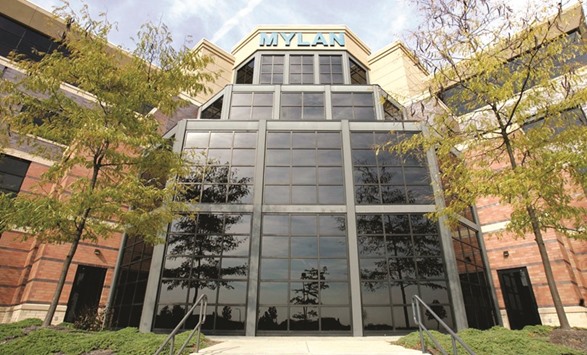About one in 19 generic drugs sold in the US during the past three years have undergone major price hikes that may be consistent with collusion, according to a wide-ranging study that comes in the middle of a sprawling Justice Department investigation into pharmaceutical price-fixing.
Fideres Partners, a London-based consultancy that works with law firms to bring litigation against companies, analysed price moves in 1,670 generic drugs sold in the US from 2013 to 2016. It identified 90 medicines whose prices were raised steeply and almost simultaneously by at least two manufacturers, even though there was no obvious reason for the increase, such as greater manufacturing costs. The average price jump among the 90 drugs was 1,350%, Fideres found.
“I don’t think the public or even the politicians in the US have any idea just how widespread and extreme the phenomenon is,” said Alberto Thomas, one of Fideres’s founders.
The manufacturers behind the highest number of potentially suspicious increases were Mylan with 30, Teva Pharmaceutical Industries with 27 and Actavis with 22, Fideres said. Actavis, now known as Allergan, sold its generic portfolio to Teva in August.
Elizabeth DeLuca, a Teva spokeswoman, said that the company doesn’t comment on individual product pricing and that many factors can affect what a drug costs. DeLuca said the company hasn’t found evidence related to the US allegations of civil or criminal liability. Mylan also said that to date, it’s not aware of any evidence that it participated in price fixing. Allergan declined to comment.
The increases alone are not proof of collusive practices, Fideres said. But the analysis provides hard data on the scale of a problem that has provoked outrage among Americans and exercised politicians from President-elect Donald Trump to Senator Bernie Sanders of Vermont. Trump has suggested bringing down prices by opening up the market to foreign competition. Last week, a US Senate committee released a report calling for pricing legislation, including importation and faster approval of competing drugs.
There are many reasons prices can rise: competing suppliers dropping out, manufacturing problems or market fluctuations that are common in the industry. However, the antitrust division of the Justice Department has been looking for the past two years into allegations of collusion among manufacturers. So far, a dozen firms have been subpoenaed and 24 specific drugs examined. Fideres acts as an expert witness in cases against companies in industries including pharmaceuticals. The firm declined to disclose details about its clients.
There may be more, said Thomas, who called the entire market ripe for collusion and anti-competitive practices.
“There is a high degree of concentration, evidence of information sharing among manufacturers and very little opportunity for consumers to go elsewhere,” he said. Mark Abueg, a Justice Department spokesman, declined to comment.
Last week 20 states, led by Connecticut Attorney General George Jepsen, filed a civil complaint alleging executives at companies agreed at trade shows, golf games and private dinners to pump up the cost of antibiotics and medication used to treat diabetes. Jeffrey Glazer, a former chief executive officer of Heritage Pharmaceuticals, and Jason Malek, an ex-president at the company, were charged in Philadelphia with two counts related to the price-fixing allegations. Lawyers for Glazer and Malek declined to comment when the charges were announced.
“We believe this is just the tip of the iceberg,” Jepsen told reporters.

The Mylan Laboratories headquarters in Canonsburg, Pennsylvania. The manufacturers behind the highest number of potentially suspicious price increases were Mylan with 30, Teva Pharmaceutical Industries with 27 and Actavis with 22, Fideres Partners, a London-based consultancy that works with law firms to bring litigation against companies, said.
